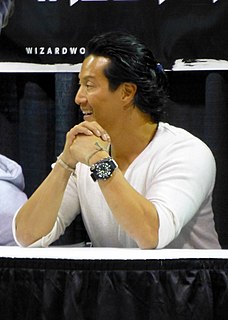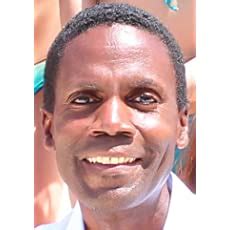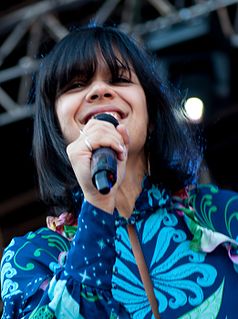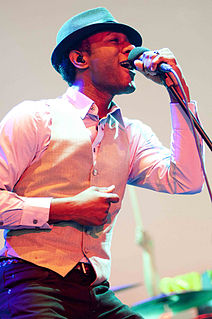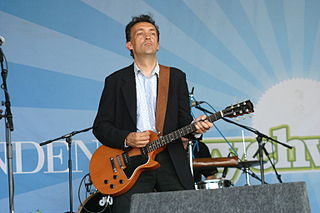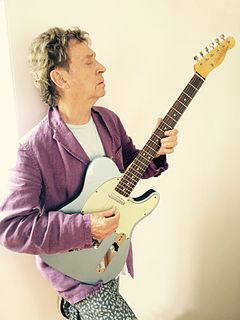A Quote by Michael Stipe
In fact, a lot of critics seemed to consider R.E.M. the first American music since the '60s to break out on its own and develop a stand-alone sound.
Related Quotes
My father was one of the first Tae Kwon Do Masters to come to the states in the '60s. He had one of the first all-African-American fighting teams, and I was basically raised in a karate studio since I was 3. It's part of my blood, competing, and all that stuff was responsible for a lot of me just growing up.
If you're frustrated by a music industry that seems too hard to break into, you're not alone. The BIG secret is information...It's not who you know, it's what you know. People who know how to put their music out make money. People who don't know how, have to beg others to help them. It's as simple as that. HipHopBiz.com provides the information people like you have been using since 1992 to release their own music.
I read a lot - surveys of vernacular music. A lot of it is the Harry Smith Anthology of American Folk Music, which I've loved since I was in high school. They had it at the library and I always thought that was interesting, even when I was into punk and stuff. Just the history of storytelling and the amount of melancholy a lot of old music has.
And if there are no cars or planes, and if no one’s Uncle John is out in the wood lot west of town banging away at a quail or pheasant; if the only sound is the slow beat of your own heart, you can hear another sound, and that is the sound of life winding down to its cyclic close, waiting for the first winter snow to perform last rites.
In Western classical music the idea of holiness, purity, perfection, and total beauty is expressed through clarity of sound - a bell-like sound. Obviously, that has its own place, and it's a beautiful way of doing it. But I don't think I am the first to point out that in Africa, the more buzzing the sound is, the more it indicates the other world - the spirit world.
Artists are creating their own genre sound, and other artists are building upon that sound and already creating a huge subculture created around one particular sound created by one artist. So, with all that happening, the genres are going to break down, and there's going to be a multitude of sound coming out.
I'm not concerned about what [Donald Trump] says about me. That doesn't matter to me. I'm going to stand up for immigrants. I'm going to stand up for American Muslims who are working hard in this country that they love and consider their own. I'm going to stand up for other women. I'm going to stand up for the right to choose.


